Things to Do and Watch in Polonnaruwa Sri Lanka
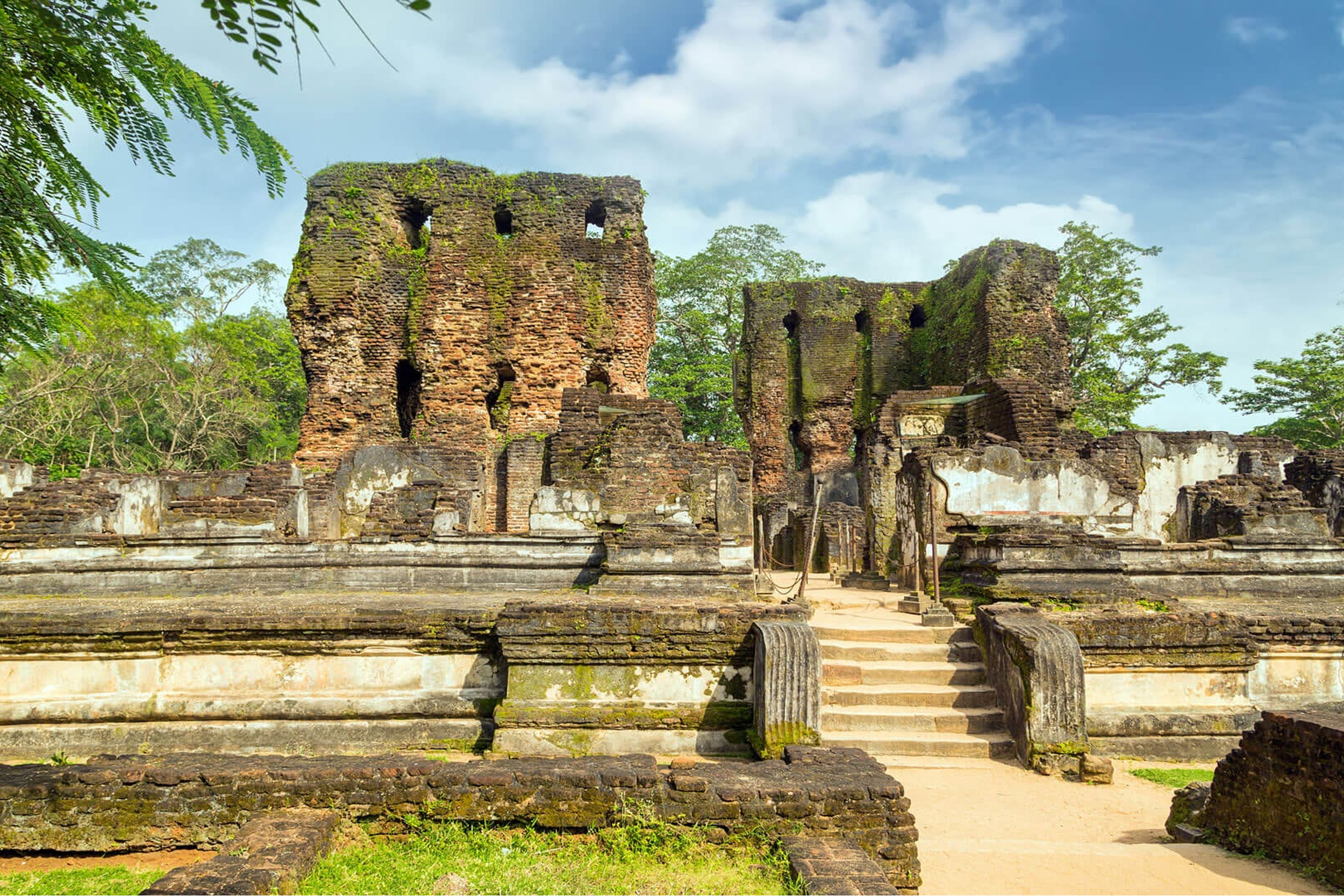
Ancient City of Polonnaruwa
The Ancient City of Polonnaruwa, a UNESCO World Heritage Site, served as Sri Lanka’s second capital following the fall of Anuradhapura in 993 CE. Established initially by the Chola dynasty, it later flourished under King Parakramabahu I in the 12th century, who transformed it into a sophisticated urban center with advanced irrigation systems like the Parakrama Samudra. Today, visitors can explore well-preserved ruins, including royal palaces, Buddhist temples, and the renowned Gal Vihara rock sculptures, reflecting the city’s historical and architectural significance.
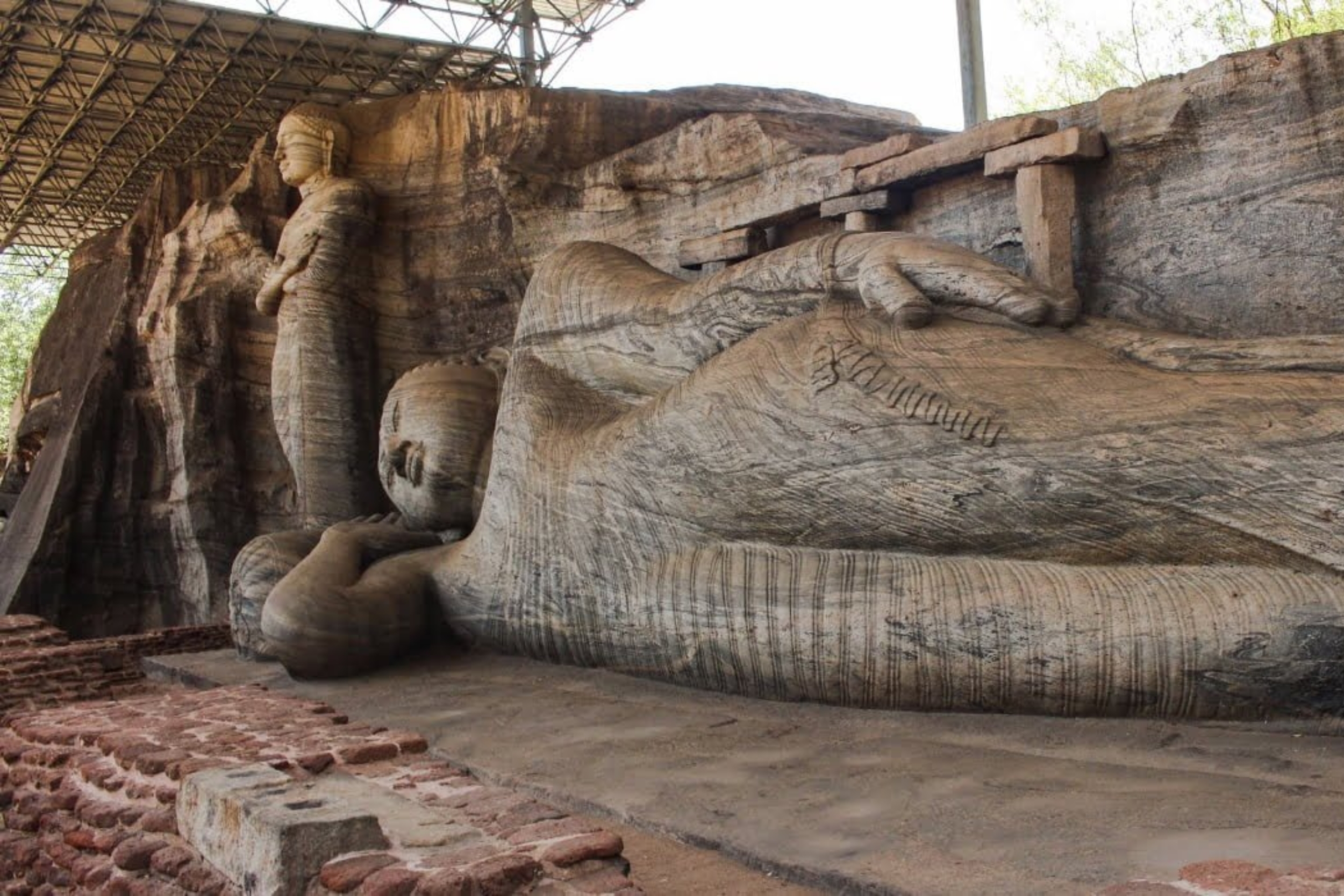
Gal Vihara
The Gal Vihara, and known originally as the Uttararama, is a rock temple of the Buddha situated in the ancient city Polonnaruwa, the capital of the ancient Kingdom of Polonnaruwa, now present-day Polonnaruwa, in North Central Province, Sri Lanka. It was fashioned in the 12th century by King Parakramabahu I.
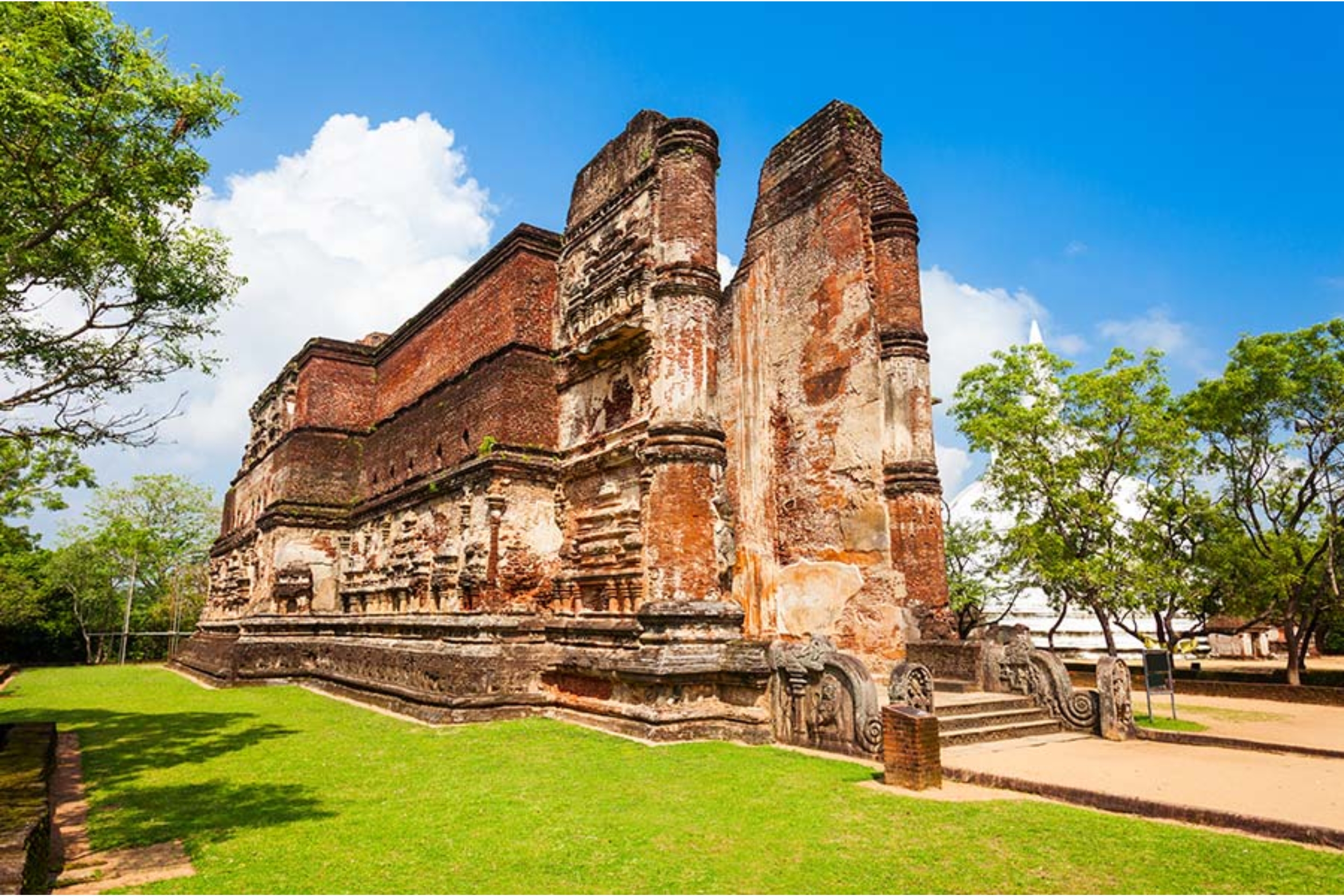
Lankathilaka Image House
The Lankathilaka Image House in Polonnaruwa is an impressive 12th-century shrine built by King Parakramabahu I, showcasing ancient Sri Lankan brick architecture. It houses the remains of a massive standing Buddha statue, once towering at 41 feet, set within high brick walls and adorned with intricate carvings. The grand entrance and thoughtful design reflect deep religious devotion, making it one of the most awe-inspiring structures in the ancient city.
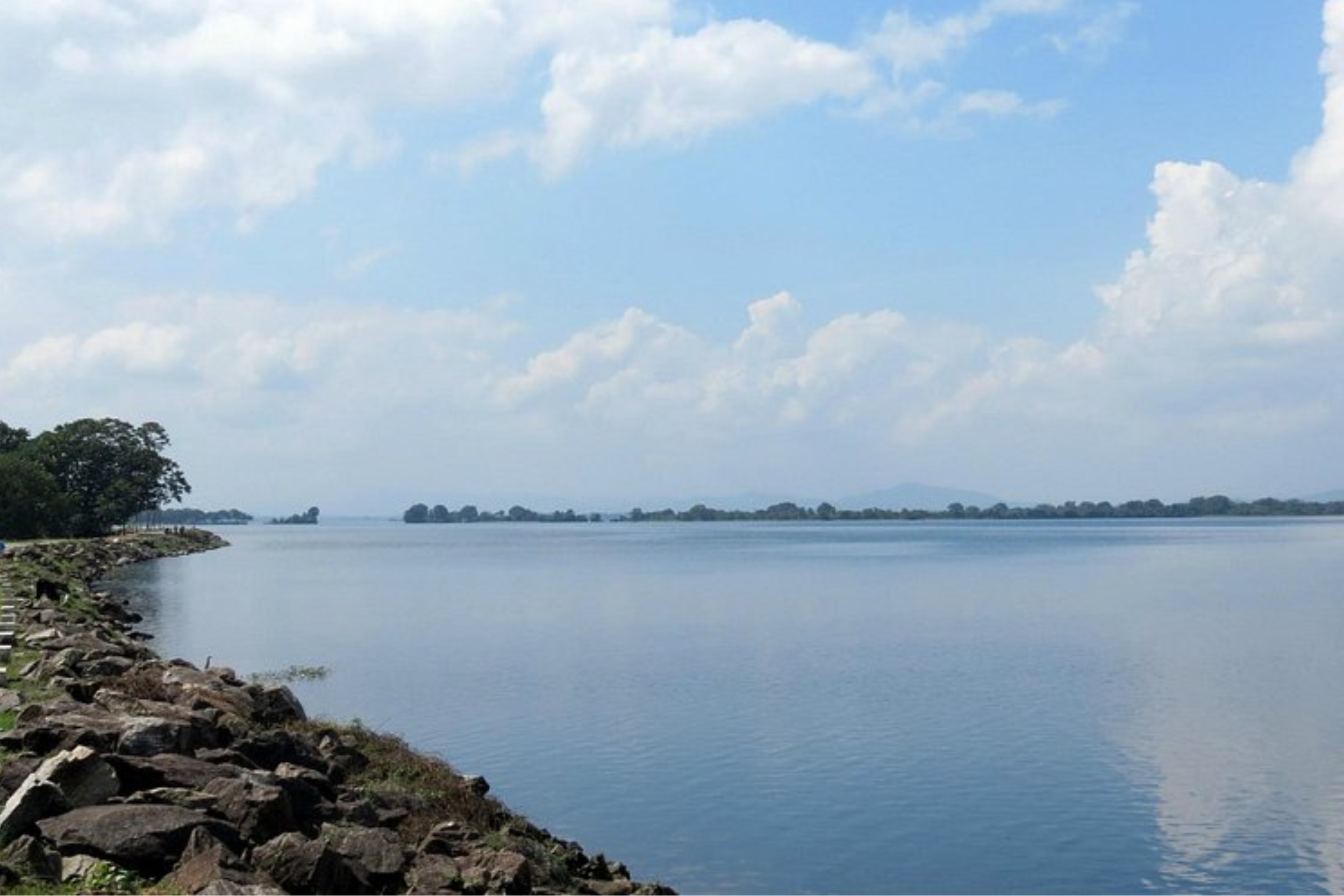
Parakrama Samudra
Parakrama Samudra is a shallow reservoir, consisting of five separate wewa connected by narrow channels in Polonnaruwa, Sri Lanka. The northernmost reservoir is the oldest and referred to as Topa wewa built around 386 AD.
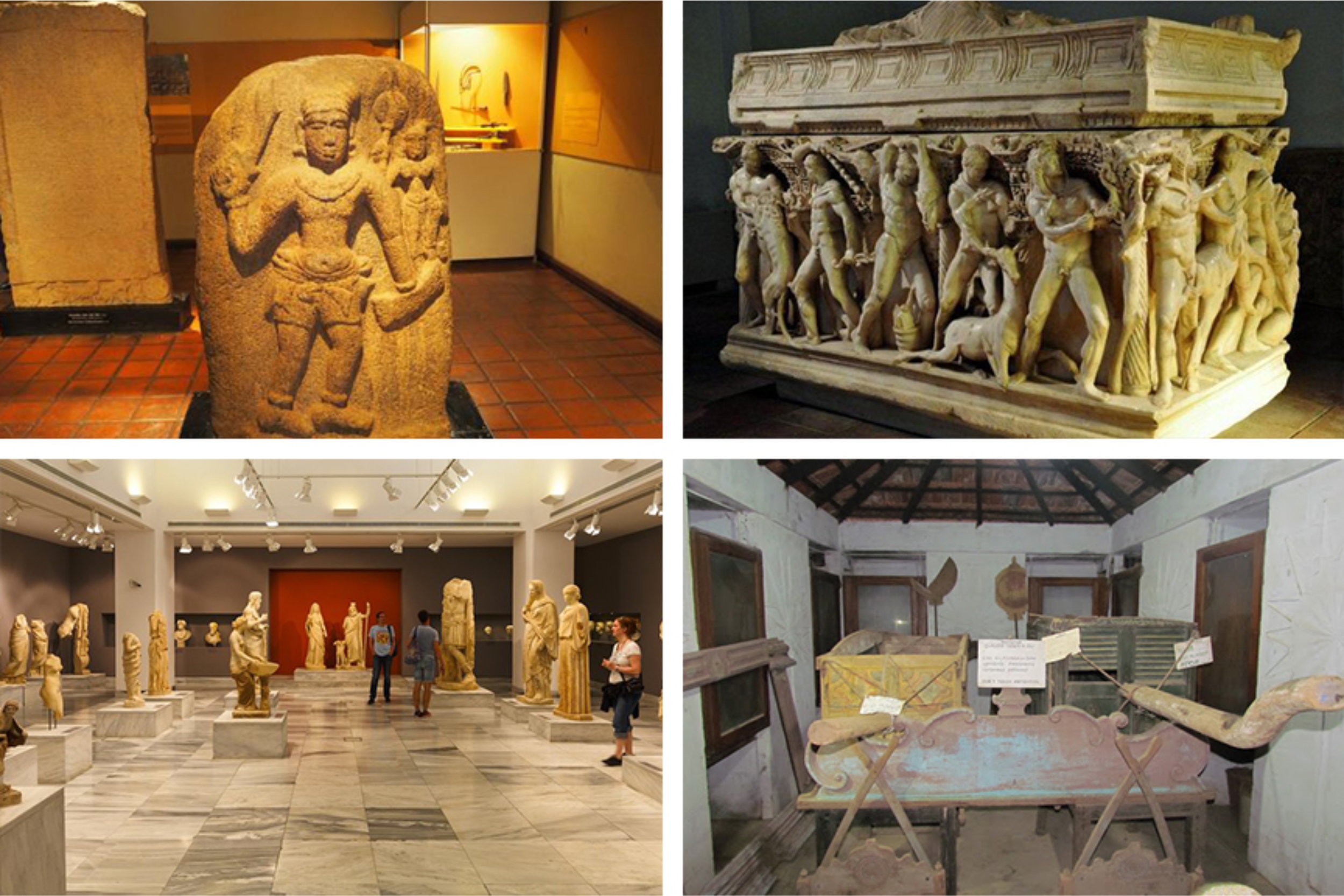
Polonnaruwa Archaeological Museum
Artifacts and exhibits from the ancient city of Polonnaruwa offer a fascinating glimpse into Sri Lanka’s rich cultural and architectural heritage. Many of these relics—such as intricately carved stone sculptures, ancient inscriptions, bronze Buddha statues, and remnants of royal palaces—are preserved in the Polonnaruwa Archaeological Museum. These artifacts reflect the advanced craftsmanship, religious devotion, and daily life of the people who lived in the city during its golden age under kings like Parakramabahu I. Visiting the museum allows you to understand the significance of Polonnaruwa as a center of political, religious, and artistic excellence in ancient Sri Lanka.







